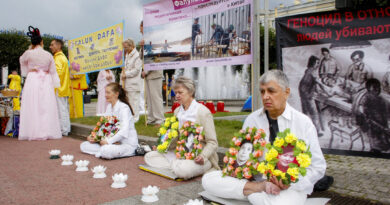NDP Unveils Healthcare Reforms, Conservatives Prioritize Agriculture and Energy Development
With the British Columbia election 17 days away, the parties continue to woo voters, with the NDP focusing on health care policies, the Conservatives laying out plans to help the agriculture industry and energy sectors, and the Greens releasing new details on housing and child care spending.
On Oct. 1, NDP leader David Eby announced two new health care policy changes to help those facing serious illness. The first is to extend travel assistance to get medical care.
“People in rural B.C. face unique challenges“ getting health care,” said Eby. “If you need treatment or to see a specialist far from home, finding the resources to travel can be particularly tricky during an already difficult time.”
The government will cover mileage costs “and make sure rural British Columbians get payment upfront – so you’re not out-of-pocket while you wait to be reimbursed,” he said.
Patients will be able to claim mileage when flights are not available or not feasible.
The second policy change will see job protection for those with a serious illness extended from the current eight days to 27 weeks.
“It’s hard enough to face treatment and recovery from a difficult diagnosis like cancer,“ Eby said. ”Nobody should be worried about losing their job when they’re fighting for their life,” said Eby.
The NDP announced plans to build a helipad at University Hospital of Northern BC in Prince George and touted its work adding a new patient care tower to the hospital, which is one of 30 hospitals being developed or expanded.
Conservative Campaign Trail
The Conservative Party of BC released a plan to revitalize the provincial farming industry.
The party said the plan includes funding for agriculture research and development, grants for farmers so they can buy advanced tools, and funding for growers who have lost crops due to extreme weather, according to a Sept. 28 news release.
Conservative Leader John Rustad’s plan also focuses on helping farmers get their products to market with strategies like expanding the Buy BC program so locally produced food and beverages are sold in stores. It also includes tax incentives for food manufacturing and improved rural transportation so farmers can get crops to market safely.
A Conservative government will also cut costs for farmers by scrapping the carbon tax, providing tax relief for small farmers renting land, and establishing a microloan program for farmers to purchase equipment, seeds, and livestock.
Rustad said his government will improve the water supply for farmers by investing in flood mitigation infrastructure, expanding water storage capacity on farms, and protecting agricultural water rights.
“BC’s farmers need reliable access to water to feed our province,” he said. “We will invest in water infrastructure and make sure agriculture is prioritized in water management policies.”
The Conservatives said they have a plan to supply affordable and reliable energy with diverse power sources, including expanded hydroelectric capacity, developing new natural gas facilities, and exploring nuclear energy. Solar, wind, and geothermal energy will be supported “where they make practical, economic sense,” according to an Oct. 1 Conservative Party news release.
Greens Comprehensive Platform
BC’s Green Party released an expanded version of its campaign platform.
The party said it will spend $650 million each year in municipal infrastructure to support new housing, and put $250 million towards expanding child care spaces for kids under 5 years old.
The Greens said they will put “$20 million annually in education and training for the renewable energy sector.”





